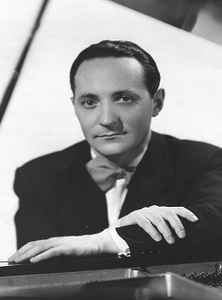The pianist who survived 7 concentration camps
mainThe Polish pianist Marian Filar was held in seven different Nazi camps, escaping the gas chambers on one occasion only because he could not walk there unaided.
He migrated to the US in 1950 and settled in Philadelphia where he made a good career and taught at two universities.
He died, aged 94, in 2012.






Somehow very heartening to hear of a survivor going on to live such a long and worthwhile life. God bless his memory.
Amazing….
The persistence of the spirit.
An extraordinary story and performance.
This Nocturne in D-flat likewise is extraordinary, a favorite of Rubinstein and Pollini, with a recorded history dating from Vladimir de Pahmann, Moriz Rosenthal and Leopold Godowsky. I especially love the minor thirds and sixths of the B-section, which Brahms must have loved. He performed a Chopin concertos in his youth and arranged some etudes. One of Chopin’s “Trois Etudes Nouvelles”,the A-flat, and the “extra” Prelude in C-sharp minor, Op. 45, could be mistaken for Brahms. I have done so.
this D-flat nocturne and the posthumous Nocturne in E minor (Moiseiwitsch, Horowitz) strike me as closest to John Field’s exanples that introduced the form, which Chopin knew, lioved, and assigned his pupils.
Interestingly, the two nocturnes in Opus 27 share the enharmonic keys of C-sharp (minor) and D-flat. The former is dark even for a night-piece, strange, foreboding, and hallucinatory in Alfred Cortot’s surpsssingly beautiful post-War recording, one of his best and strangest,with a tremendous unwritten climax and up-swelling bass line not apparent in the score. “Magically wayward and brilliantly inaccurate” in James Methuen-Campbell’s memorable phrase.
This is exquisite, sensitive. A reminder, in difficult days, of
the amazing courage of this artist in surviving and playing .
…the amazing courage in surviving and living.
beautiful playing.
What a lovely performance by this now almost forgotten pianist, who survived the Nazi bastards’ murderous terror to have a good career performing and teaching in the USA (he appeared many times with Ormandy/Philly and taught for thirty years at Temple University).
This kind of playing, delicate, romantic, and unrushed, is the polar opposite from Chopin playing nowadays. THIS is the real deal.
R.I.P., honored maestro.
Agreed. It has an inner authenticity and ballance, combined with a fluent but reserved romanticism, and the rubato is beautiful.
Wow. I weep.
I grew up mixed Irish-Jewish, in a mixed Irish-Jewish neighborhood in Rhode Island (USA).
My mother bought yard goods from Mrs. Berger. Mrs. Berger never made an effort to hide her concentration-camp tattoo.
My older brother’s friend Harry’s mother, Mrs. Rose, was one of a pair of twins who were “experimented” on by Josef Mengele. Her sister died; Mrs. Rose lived.
My French teacher in prep school, Mr. Daskolovich, was a Yugoslav military officer who had been held in a POW camp with a common fence with a concentration camp.
My violin teacher at Brown University, Professor Kowlaski, twice jumped out of trucks on his way to being executed.
Has there ever been a century worse than the 20th… all the way back to the 14th?
john
PS: My parents were old-world Catholics, and they wanted a girl; so, my middle name is “Marian.”
My younger sister is “Mary.”
Extraordinary stories. Such stories should not be forgotten, since they demonstrate the darker side of humanity, against which art is a defence.
Gorgeous playing tht comes through despite the record scratches.
How CAN there be a comment?
Thanks for this tribute to him, Norman. BTW, Mark Ainley at The Piano Files also has some Filar recordings among the many rarities he showcases. I found this one quite lovely:
https://youtu.be/M_rLrH5i2B4
A fascinating angle about this is that Mr. Filar studied, toured and played with Walter Gieseking for five years (1945-50). Gieseking has often been thought of as a devoted Nazi yet here he is teaching and playing with a Jewish Pole who went to 7 concentration camps! According to Wikipedia: “Gieseking continued to reside in Germany, while continuing to concertize in Europe, and was accused of having collaborated with the Nazi Party. He was criticized for this by pianists Vladimir Horowitz, who, in the book Evenings with Horowitz, calls Gieseking a “supporter of the Nazis,” and by Arthur Rubinstein who recounted in his book My Many Years a conversation with Gieseking in which alleges he said “I am a committed Nazi. Hitler is saving our country.” Perhaps, the whole war experience was far more traumatic and less black and white than we think.
I tuned the two Steinways in his studio, he was a gracious man!!!
I wrote a lengthy feature on this artist at this link last year, including a number of uploads of private recordings:
https://www.thepianofiles.com/the-magnificent-marian-filar/
I’ve since made some more uploads and others are coming. A stupendous musician.